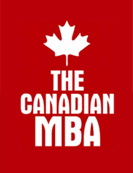LIST OF THE COURSES
Module 1: Managers and the Company
- Organizational Behaviour - MBA 8410
- Statistics and Operations Analysis - MBA 8411
- Financial Accounting - FIN8502
Module 2: Commercial and Financial management
- Marketing - MBA 8416
- Managerial Accounting - FIN 8502
- Managerial Finance - MBA 8415
Module 3: Management of Operations and Performance
- Operations Management - MBA 8417
- Human Resources Management - MBA 8418
- Economics and Sociopolitical Context of the Firm - MBA 8421
Module 4: Corporate Strategy and Management
- Strategic Management - MBA 8422
- Contemporary Issues in Strategic Management - MBA 8T2C
- Simulation/Corporate Management - MBA 8439
Module 5: International Management
- International Finance - MBA 8122
- International Marketing - MBA 8425
- Applied Integrative Project in International Business - MBA 8448 (alternatively with MBA 8436 International Mission to China)
- Career Development and Leadership Competencies - MBA 8T2B
Foreign Mission organised by UQAM:
1. Summer School in Montreal
2. Mission to Silicon Valley
BRIEF DESCRIPTION OF THE MAIN COURSES
MODULE 1 - Managers and the Company
Organizational Behaviour (MBA 8410)
This course deals with the study, description and explanation of human behavior in organizations. Students will focus on the behavior of people in organizations, the theory and methods appropriate to its study and the adaptation of knowledge in ways useful for the manager. Particular emphasis is placed on identifying and diagnosing the causes and consequences of effective and ineffective behavior in organizations, as well as on some aspects of group dynamics including intra- and inter-group process.
Statistics and Operations Analysis (MBA 8411)
The course is structured to encompass both the traditional principles of Decision Making at strategic, tactical and operational levels and the special needs of computer software applications, supporting the decision-making process. The course will develop the student's ability to identify the various types of decision-making processes involved, their interrelationship and certain and uncertain factors that bear on these decisions and to recognize practical situations where various techniques, models and approaches can be used through a combination of lectures, case-scenarios and simulation of the real business environment.
Financial Accounting (MBA 8F3X)
This course focuses on the acquisition of knowledge enabling an understanding of accounting information and its use for management purposes. The student will learn useful accounting principles for decision-making and company valuation, tax issues, analysis of external financial reports.
MODULE 2 - Commercial and Financial Management
Marketing (MBA 8416)
This course offers an intensive examination of the workings of markets and provides students with concrete knowledge on how marketing strategies are shaped and implemented. The course focuses on management decision-making : on the analysis, planning and control of marketing programs. All aspects of marketing theory are covered at an introductory level. Specific topics include : the marketing concept, segmentation, product differentiation, consumer and industrial behavior, marketing planning, product decisions, pricing decisions, advertising and promotion decisions, selling and distribution decisions, as well as social, legal and ethical issues in marketing.
Managerial Accounting (FIN 8502)
This course provides an overview of management accounting issues and practices of the corporate external financial reporting system and the managerial objectives of corporate financial statements. The roles of management, government and auditors and the process for developing and enforcing generally accepted accounting standards, both legal and professional, are examined. Emphasis is placed on financial statements analysis from a user-oriented perspective.
Managerial Finance (MBA 8415)
This is an introductory course to the modern theory of finance. The course is concerned with how management decisions affect the value of the firm for the shareholders and how capital markets direct funds to projects that maximize the value of the enterprise. The core topics include : capital budgeting, the valuation of stocks and bonds, portfolio theory, asset pricing models, capital structure and dividend policy issues.
MODULE 3 - Management of Operations and Performance
Operations Management (MBA 8417)
This course is an introduction to decisions and trade-offs associated with the production of goods and services. Topics include technology planning (production process), design of production systems (capacity and location planning), control issues (production planning and inventory control, MRP/JIT, scheduling, quality and reliability and distribution planning), design for manufacturing, management of new technology (FMS, group technology and robotics) and management of service operations. The interactions with the strategy of the firm as well as with other functional areas, such as information systems, marketing, accounting and finance, are illustrated through case studies.
Human Resources Management (MBA 8418)
This course focuses on the critical tasks of human resource management. Topics include : human resource planning, personnel appraisals, training and development, compensation systems, wage and salary administration. Students will acquire an understanding of the operational aspects of the human resources function within the company and the study of its importance.
Economic and Sociopolitical Context of the Firm (MBA 8421)
The aim of this course is to increase the students' understanding of the market place, the structure of competition, macro-economic mechanisms, and to introduce them to cultural, organizational, political and social issues and their impact on public and private organizations.
MODULE 4 - Corporate Strategy and Management
Strategic Management (MBA 8422)
This is a Capstone course which provides students with integrated and illustrated conceptual frameworks for the effective strategic management of modern complex organizations. It is made up of two distinct parts. The first part focuses on the economics of strategy and deals with economic value creation, cost and market dynamics underpinning competitive strategies, strategic planning in uncertain times, corporate governance and organizational forms to implement strategic choices. The second part is entirely dedicated to the critical issues of leadership and the management of change. Students will be introduced to sound theories concerning the management of change and will develop a capacity to diagnose different situations of change and map out action programs to implement the desired changes. The concepts of culture and structure, mindset, , social capital, and meta-strategies will be illustrated with vivid examples.
Contemporary Issues in Strategic Management (MBA 8T2C)
The three major objectives of the course are to inform, suggest, and inspire:
The course is to provide the students with broad information on a variety of problems related to conceiving and introducing management strategies in the specific, dynamically changing context of New Economy. The fundamental claim of this course is that today’s management revolution will force every business to re-invent its business model (AKA „the way we make money here”).
On that base, the course intents to suggest the different actions that companies and their managers may take on the ideas discussed. And finally, the course is to inspire the students by presenting a diversified picture and a real sense of the unlimited opportunities that today’s business creates for them.
Simulation/Corporate Management (MBA 8439)
This course provides an intensive application of the concepts studied in the Capstone Strategy course. It is designed with the intent to offer students exposure to concrete strategic issues through real-life business cases and to further develop the analytical skills and presentation abilities in the context of case preparation, discussions and debates. This course also gives students, through a business simulation, a sense of real-life interactive, strategic management. Grouped in management teams of publicly traded competing firms, they are asked to take decisions on a full panoply of management variables (marketing, finance, production, R&D) in a context of socio-political and competitive uncertainties as well as demanding financial markets.
MODULE 5 - International Management
International Marketing (MBA 8425)
This course focuses on models of buyer behavior both for consumer and industrial goods. It will include reviews of state-of-the-art approaches to the systematic mapping of buyer behavior as well as methods and techniques to understand and predict buyer responses to marketing actions. Students will review the marketing issues and challenges for a company seeking to extend its sales reach beyond the confines of its domestic market. Cross-cultural aspects of transnational pricing, channels of distribution and communication policies to develop an optimum strategy (between adapting completely to each local environment and standardizing across them for arriving at an integrated and profitable operation) will be discussed. The course will develop the student's ability to choose marketing strategies and tactics for entry and growth in foreign countries. Particular attention will be paid to international marketing and exporting in the Polish, European and North American contexts.
International Finance (MBA 8122)
This course will examine the operational problems and policies of financial management in an international context : the international monetary system; foreign exchange and Euro currency markets; determination of a firm's exposure to the effects of exchange rate changes; protecting against exchange losses; multinational sources and cost of capital, foreign direct investment decisions; multinational capital budgeting; policies and strategies of international financial institutions, contemporary developments in international finance.
Applied Integrative Project in International Business (MBA 8448)
As the culmination of the EMBA program, the students complete a consultant-type project in International Business. Working in teams of up to five under the supervision of CEMBA faculty, they will conduct a consulting assignment for a client organization. The Applied Integrative Project provides them with an opportunity to apply management tools they have acquired during the entire CEMBA program and to gain valuable consulting experience. Alternatively, some students pursue an independent Research Project in an area that is of interest to themselves. Examples of Research Projects include case studies and/or empirical research studies.
Career Development and Leadership Comptencies (MBA 8T2B)
The course aims at profiling each student’s individual personality traits and leadership competencies. Its objective is to familiarize the students with tools that will allow them to analyze their own career goals and to discover the best way to achieve their goals and fulfill their potential.









